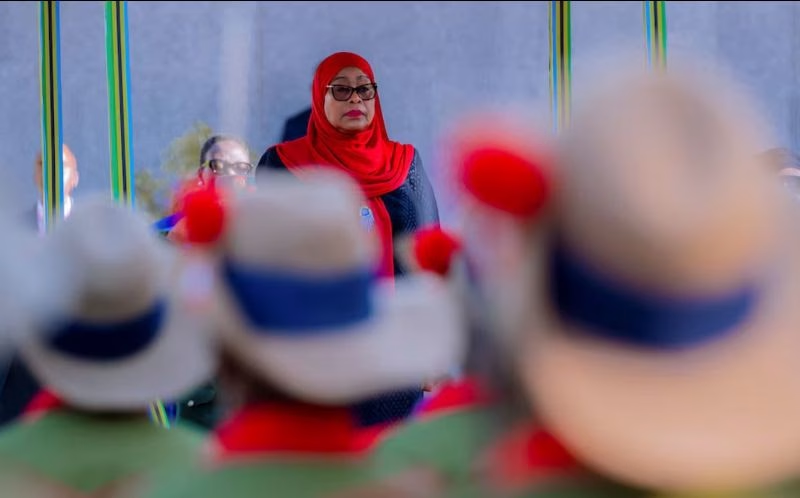For decades, “reduce, reuse, recycle” has been sold as the holy trinity of environmental responsibility — a simple formula that empowers each of us to do our part for the planet. But what if that slogan has been one of the most effective distractions in modern history?
Across Africa and the world, climate activists are calling out what they now see as a corporate sleight of hand: a green façade that shifts blame from the fossil fuel giants driving the crisis to the everyday consumer struggling to make ethical choices.
The illusion of personal responsibility
The fossil fuel industry’s fingerprints are all over this narrative. For over 50 years, major corporations have worked with public relations firms to reframe climate change as a matter of personal guilt rather than systemic accountability.
It’s a strategy that works. Individuals are told to recycle plastic bottles while oil companies continue to open new drilling sites. Consumers are shamed for flying while industrial emitters release billions of tons of carbon unchecked.
The reality? Individual emissions make up less than 20% of global totals. The rest come from large-scale industrial systems, corporate supply chains, and infrastructure — areas far beyond the reach of the average person.
As one African climate scholar-activist put it, “The goal was to make people look inward, not upward.” And that deflection has delayed the kind of radical structural reform the planet urgently needs.
Africa’s growing call for systemic change
The Intergovernmental Panel on Climate Change (IPCC) has made it clear: avoiding climate catastrophe will require “rapid and far-reaching transitions across all sectors and systems.” That’s not something you achieve by sorting your trash — it demands policy reform, corporate accountability, and equitable redistribution of resources.
From Nairobi to Lagos to Cape Town, African climate movements are embracing a new rallying cry: “Systems Change, Not Climate Change.” Their message is clear — real progress means dismantling the economic systems that reward pollution and exploitation.
Scholars and activists are reframing the old three Rs with a new set of imperatives: Regulation, Redistribution, and Reparations. Together, they offer a roadmap for a just transition — one rooted in justice, not guilt.
Regulation: reining in the polluters
Corporations love to claim they can self-regulate. The evidence says otherwise.
A global study of over 23,000 companies found that nearly 75% have no credible climate transition plan. Many continue to invest heavily in new oil, gas, and coal projects — even as scientists warn that burning existing reserves would exceed the safe carbon budget.
African governments have a unique opportunity to lead with bold regulation: ending fossil fuel subsidies, enforcing corporate emissions limits, and investing in clean energy infrastructure. Regulation, not voluntary pledges, is what will shift the balance of power from polluters to people.
Redistribution: funding a just transition
The second R — redistribution — addresses the economic injustice at the heart of the climate crisis.
In countries like South Africa, where 10% of citizens control more than 80% of the wealth, inequality amplifies vulnerability. Trade unions such as COSATU and SAFTU have called for progressive taxes on wealth, pollution, and financial transactions to fund a just transition for workers and communities.
Across the continent, networks like the Africa Tax Justice Network are echoing this call — arguing that climate solutions must also tackle the historic inequities of extraction, debt, and dependence.
Redistribution is not just about money. It’s about shifting power — ensuring communities most affected by climate change have control over the solutions that impact their lives.
Reparations: restoring what was taken
The third R — reparations — confronts an uncomfortable truth. Africa contributed least to global warming, yet bears the heaviest burden of droughts, floods, and food insecurity.
Reparations mean more than aid or charity. They mean debt cancellation, technology transfer, and climate finance from wealthy, polluting nations — not as loans, but as overdue payments for damage done.
As Nigerian philosopher Olúfẹ́mi O. Táíwò reminds us, reparations are “a world-making project.” They are not only about compensation but about rebuilding societies and ecosystems that were dismantled by colonialism and capitalism — creating systems rooted in dignity and sustainability.
Moving beyond guilt toward justice
Even during the 2020 global lockdowns — when billions stayed home and consumption plummeted — global emissions dropped by only 8%. The lesson is stark: personal sacrifice alone cannot solve a structural problem.
Like the late Steve Biko once said of South Africa’s struggle against apartheid, blaming the poor for their oppression misses the system designed to keep them there. In today’s climate fight, blaming individuals for a global crisis does the same.
“Reduce, reuse, recycle” may still have its place in schools and households. But for Africa’s climate future, the mantra must evolve. It’s time to speak the language of justice — to regulate, redistribute, and repair.
Because saving the planet isn’t about polishing our consciences. It’s about changing the system that’s burning it down.











